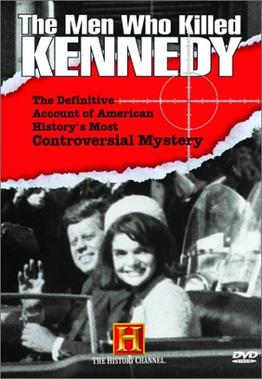 The Speech JFK Never Gave
The Speech JFK Never Gave
This is part of the speech president John Fitzgerald Kennedy would have given the night he was assassinated.
REMARKS PREPARED FOR DELIVERY AT THE TRADE MART IN DALLAS, TX, NOVEMBER 22, 1963 [UNDELIVERED]
President John F. Kennedy
November 22, 1963
I am honored to have this invitation to address the annual meeting of the Dallas Citizens Council, joined by the members of the Dallas Assembly – and pleased to have this opportunity to salute the Graduate Research Center of the Southwest.
It is fitting that these two symbols of Dallas progress are united in the sponsorship of this meeting. For they represent the best qualities, I am told, of leadership and learning in this city – and leadership and learning are indispensable to each other. The advancement of learning depends on community leadership for financial and political support and the products of that learning, in turn, are essential to the leadership's hopes for continued progress and prosperity. It is not a coincidence that those communities possessing the best in research and graduate facilities – from MIT to Cal Tech – tend to attract the new and growing industries. I congratulate those of you here in Dallas who have recognized these basic facts through the creation of the unique and forward-looking Graduate Research Center.
This link between leadership and learning is not only essential at the community level. It is even more indispensable in world affairs. Ignorance and misinformation can handicap the progress of a city or a company, but they can, if allowed to prevail in foreign policy, handicap this country's security. In a world of complex and continuing problems, in a world full of frustrations and irritations, America's leadership must be guided by the lights of learning and reason or else those who confuse rhetoric with reality and the plausible with the possible will gain the popular ascendancy with their seemingly swift and simple solutions to every world problem.
There will always be dissident voices heard in the land, expressing opposition without alternatives, finding fault but never favor, perceiving gloom on every side and seeking influence without responsibility. Those voices are inevitable.
But today other voices are heard in the land – voices preaching doctrines wholly unrelated to reality, wholly unsuited to the sixties, doctrines which apparently assume that words will suffice without weapons, that vituperation is as good as victory and that peace is a sign of weakness. At a time when the national debt is steadily being reduced in terms of its burden on our economy, they see that debt as the greatest single threat to our security. At a time when we are steadily reducing the number of Federal employees serving every thousand citizens, they fear those supposed hordes of civil servants far more than the actual hordes of opposing armies.
We cannot expect that everyone, to use the phrase of a decade ago, will "talk sense to the American people." But we can hope that fewer people will listen to nonsense. And the notion that this Nation is headed for defeat through deficit, or that strength is but a matter of slogans, is nothing but just plain nonsense.
I want to discuss with you today the status of our strength and our security because this question clearly calls for the most responsible qualities of leadership and the most enlightened products of scholarship. For this Nation's strength and security are not easily or cheaply obtained, nor are they quickly and simply explained. There are many kinds of strength and no one kind will suffice. Overwhelming nuclear strength cannot stop a guerrilla war. Formal pacts of alliance cannot stop internal subversion. Displays of material wealth cannot stop the disillusionment of diplomats subjected to discrimination.
Above all, words alone are not enough. The United States is a peaceful nation. And where our strength and determination are clear, our words need merely to convey conviction, not belligerence. If we are strong, our strength will speak for itself. If we are weak, words will be of no help.
I realize that this Nation often tends to identify turning-points in world affairs with the major addresses which preceded them. But it was not the Monroe Doctrine that kept all Europe away from this hemisphere – it was the strength of the British fleet and the width of the Atlantic Ocean. It was not General Marshall's speech at Harvard which kept communism out of Western Europe – it was the strength and stability made possible by our military and economic assistance.
In this administration also it has been necessary at times to issue specific warnings – warnings that we could not stand by and watch the Communists conquer Laos by force, or intervene in the Congo, or swallow West Berlin, or maintain offensive missiles on Cuba. But while our goals were at least temporarily obtained in these and other instances, our successful defense of freedom was due not to the words we used, but to the strength we stood ready to use on behalf of the principles we stand ready to defend.
This strength is composed of many different elements, ranging from the most massive deterrents to the most subtle influences. And all types of strength are needed – no one kind could do the job alone. Let us take a moment, therefore, to review this Nation's progress in each major area of strength.



 en.wikipedia.org
en.wikipedia.org


